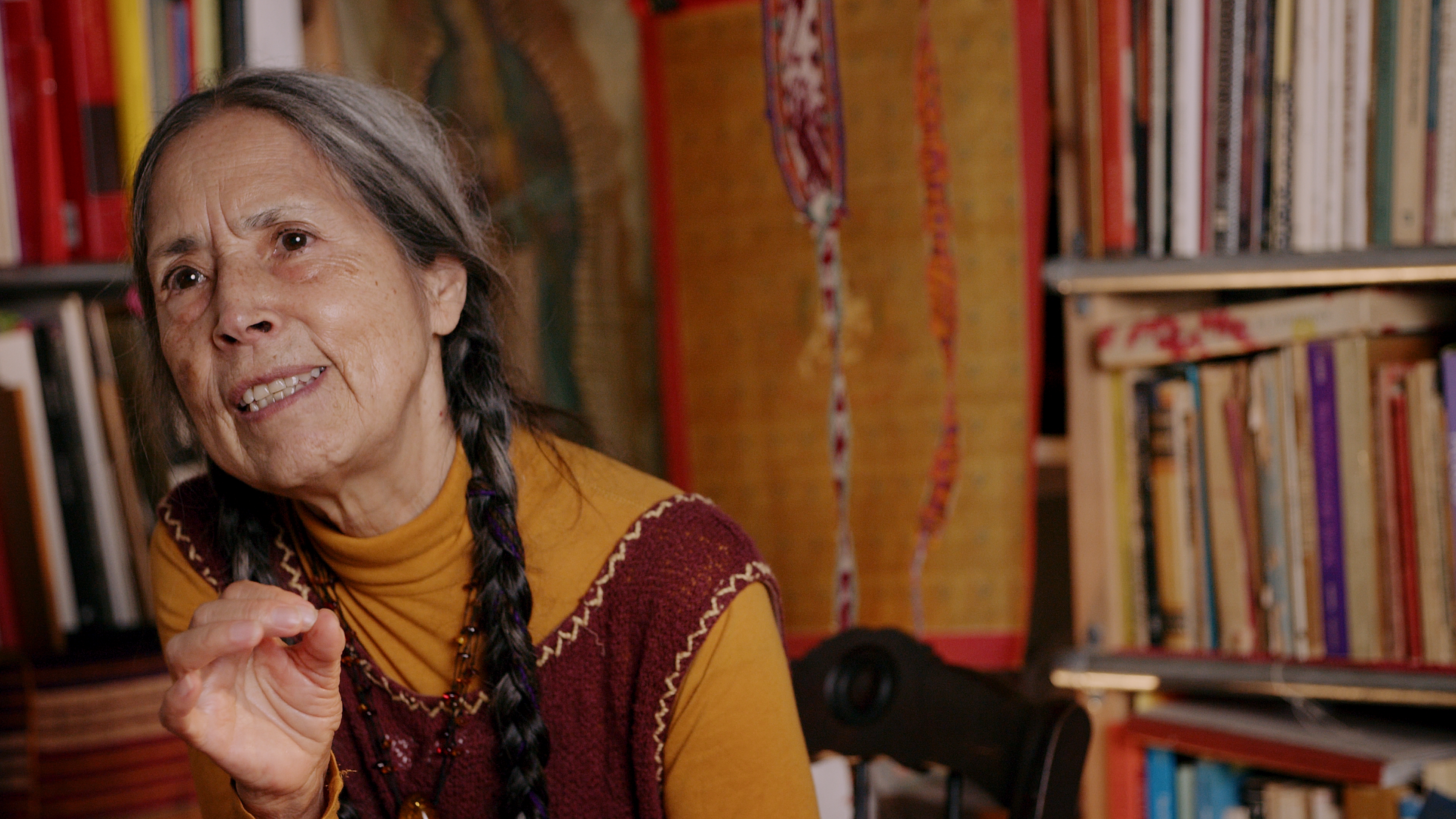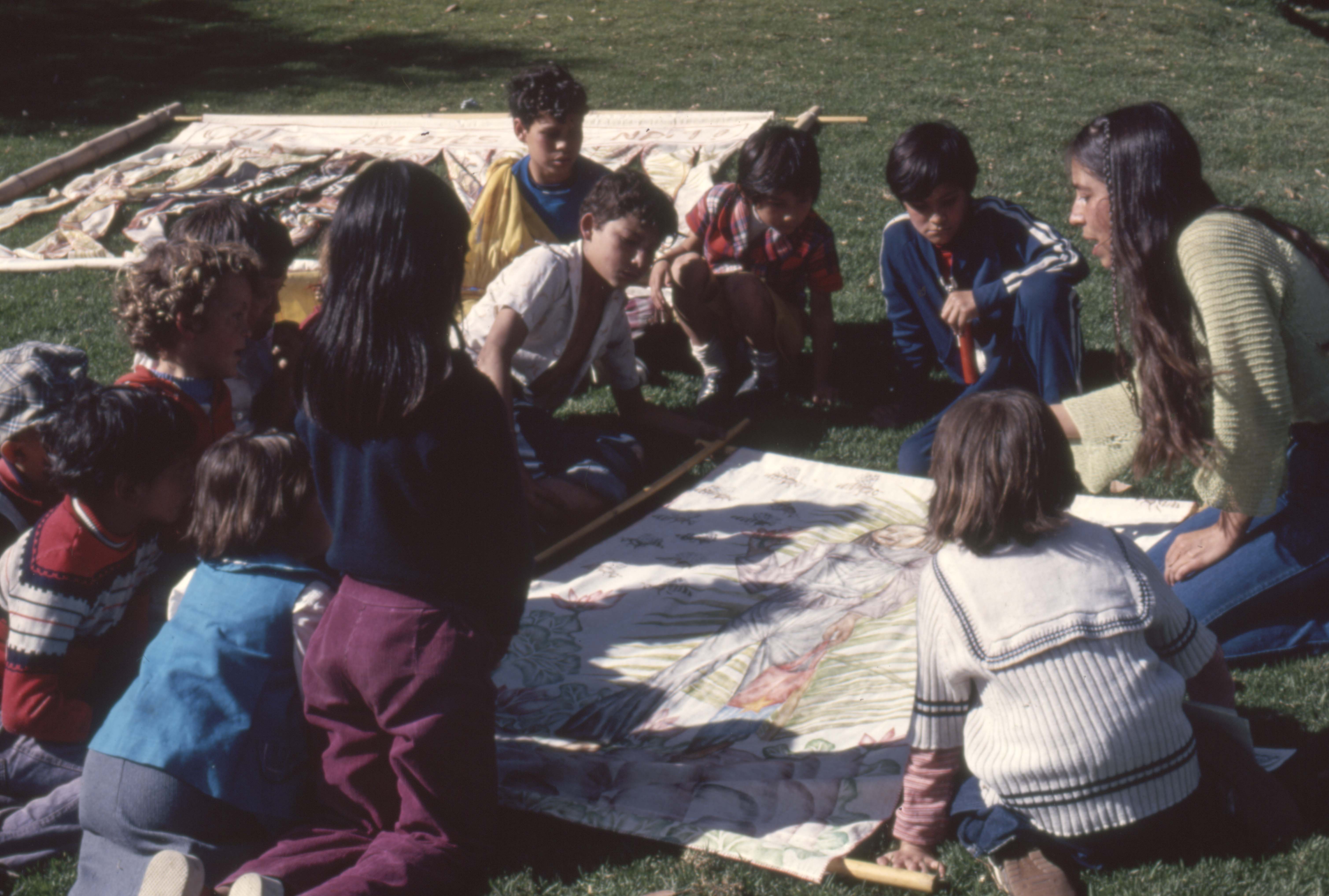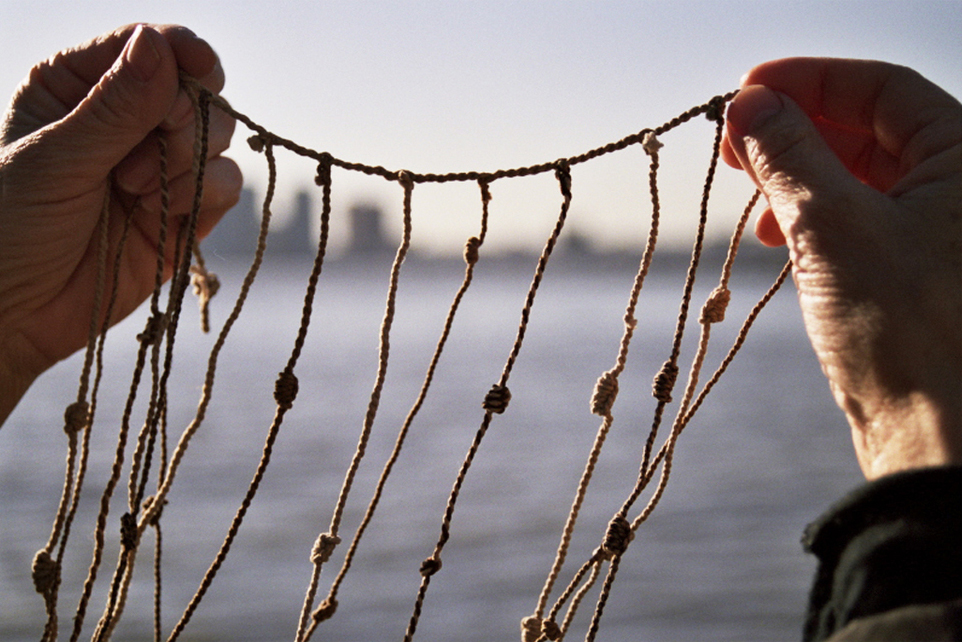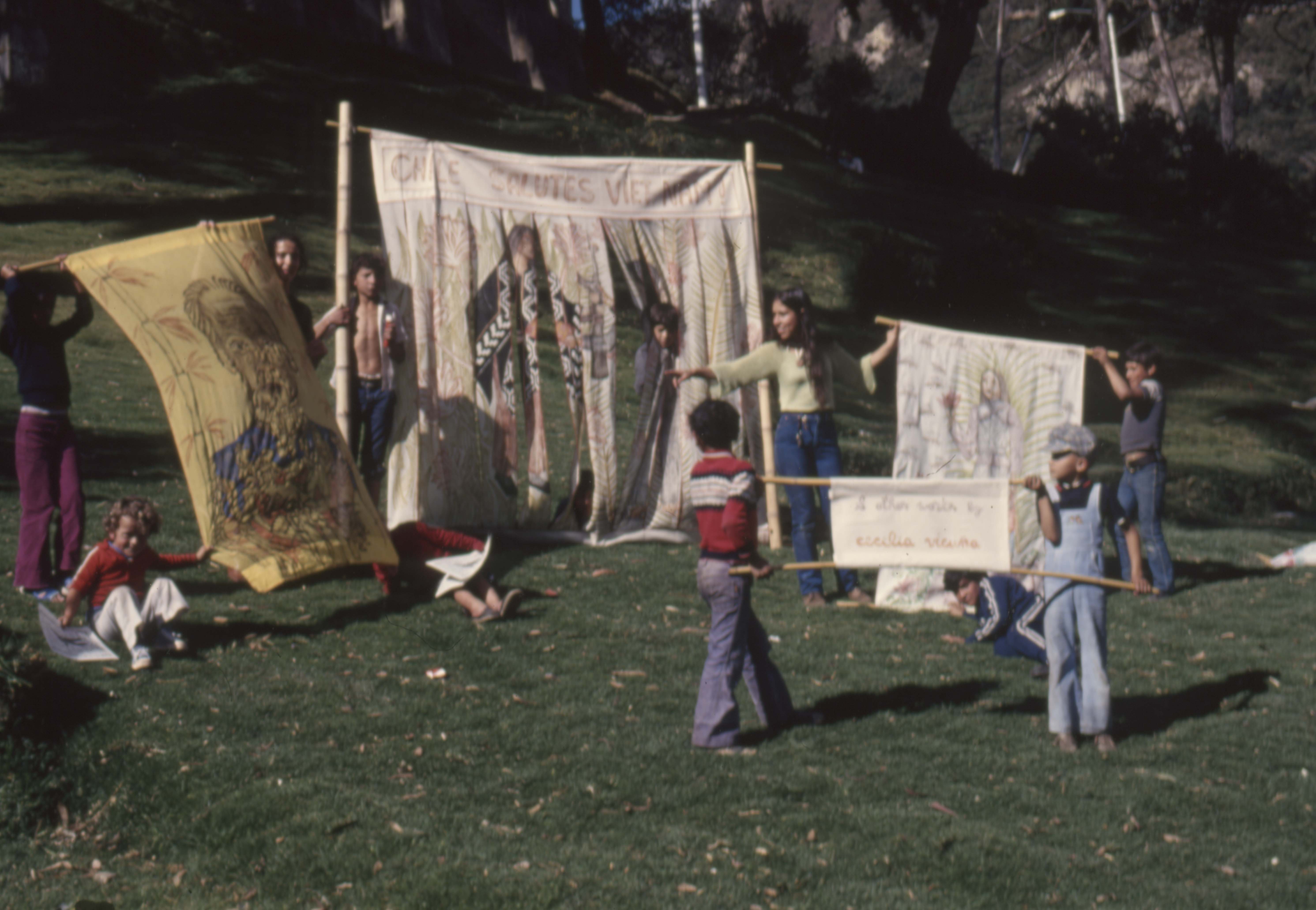School of Listening the IM pulse of the POSSIBLE
past
Online
2022-I
03/09/2022
For the opening session of the AUDITORIUM, Cecilia Vicuña will share with La Escuela___ her reflections on the process of decolonizing thought through language and orality.

I recall having a dialogue many years ago, in 2005, with a young American poet who had been part of a project to revive Paulo Freire's education system in the United States. In that conversation, she said that what interested her most about Freire was his concept of generative words. She asked me if, as a young girl, I had met Freire when he was here in Chile. And I did not, because he was from another generation. I was a very young teenage girl when he was here. Actually, as a poet and an artist, I only found out about Freire after I had left Chile.
However, there is a common spirit that brings us tremendously close, because, before the publication of Pedagogy of the Oppressed, where he lays out this system of language and the observation of language and the practice of debating, communicating, and considering language itself among various people and with the students, I had my own system of riddles that later became the palabrarmas [word-weapons].
In honor of that coincidence, that also exists with the great 18th-century master Simón Rodríguez — who is another author that I discovered with whom there is also that common reality of observing words. That lineage is found in all cultures, both in Africa and Asia. Now we are diving into a future linked to that line of thought.
Then I thought about the word 'educate' — and I imagine you have also researched it. Educate comes from Latin and is formed by the confluence or clash of ex, which means 'of, from, outside of, out of’ and from ducere, which means 'to guide or lead.' Also from the same root comes con-duct.
What is this drawing out? What does education draw out? I find very interesting the fact that the origin of the word is to draw out, which is the opposite of what the education imposed since the invasion of the Americas does. Ever since, there is this idea that to educate is to put ideas into children's heads, when its primordial meaning, its first meaning, was 'to draw out,' that is to say, to liberate, to release potential. For me, that is the core of education, which fascinates me. It is in self-education that one observes how to release that potential of self-knowledge and of knowing, contemplating the form and quality of the relationship with others. That is, the awareness and quality of the interaction.


So, going back to the duc part of the word, I imagined that if education focused on duc, as a duct, as a channel, as a conductive pipe, which is defined in the dictionary as “the capacity of a body to let heat or electricity pass through,” then the con-duct, meaning to be guided together or by what unites us, that would be another way of understanding education.
In a previous conversation we had with Miguel Braceli, we talked about the precarious as an educating and educational principle. The precarious as that which connects us with pain, with not knowing, with what collapses and dissolves, which is what is happening now. So, how to create a space where this con-ducting ourselves together is something that we can con-sider together? Letting the exchange and the quality of the exchange guide us towards an inclusive form where we can all be in.
Since I was a child, when I started to invent little schools — I have told this story many times — I imagined ways of educating based on this principle of nothingness, of hearing. The school we invented, the School of Listening, is based on that: on the idea that the word oír (in Spanish, meaning ‘to hear’) is a door, which has its root in the sound ‘o’. The mouth opens as the ear opens, producing astonishment: Oh! Hearing is the door between the dimensions of perception.
Writing about these things, one day I came across the image of the pupil. An image that evokes the idea that the pupil, in many languages — this is a fascinating linguistic term — is also the student. The pupil is the hole at the center of the iris through which light enters the eye. At the same time, the pupil represents the way others see us. It is as if we become tiny beings standing in the doorway of somebody else's iris. The void through which light enters. It is an image of exchange and a reflection of Freire's idea that education can only really work if no one is teaching another but rather when we are teaching and educating each other.

We continuously educate each other with our gestures, our gazes, our feelings. Now there is a relatively new science called epigenetics, which shows that, for example, when a pregnant woman gets upset, is exposed to violence, or something enrages her, the pain she experiences is transmitted to the baby in her womb. It alters the order and the genes and their possibility of transmitting a story — because, bottom line, genes transmit stories. In other words, what the mother feels is more important than genetic transmission. Notice how that completely overturns the science that says that we are determined by genetics. We are not. What really determines the future is what happens between the mother, the father, the interactions. That is human relationships. That is the principle of indigenous culture. Always reciprocity, mutual transformation, and working together. Or conflict, which is also a kind of cooperation, some sort of protection.
Finally, in these notes, I have the word aprender ('to learn'). From Latin apprehendere, which is 'to grasp, to seize, to catch.' It is the apprehending of learning, which is the only possible way to learn. Lastly, the etymology of the word 'school,' which comes from Latin schola. Some translate it as 'lesson.' It means 'leisure, free time.' That is, the idea that studying is the school of freedom, of nothingness, of doing nothing.
So, what an incredible marvel the potential that this gives us for inventing and thinking about other forms of schooling in which leisure, disorder, chaos — the very way of being of children at school — is the real teaching.

